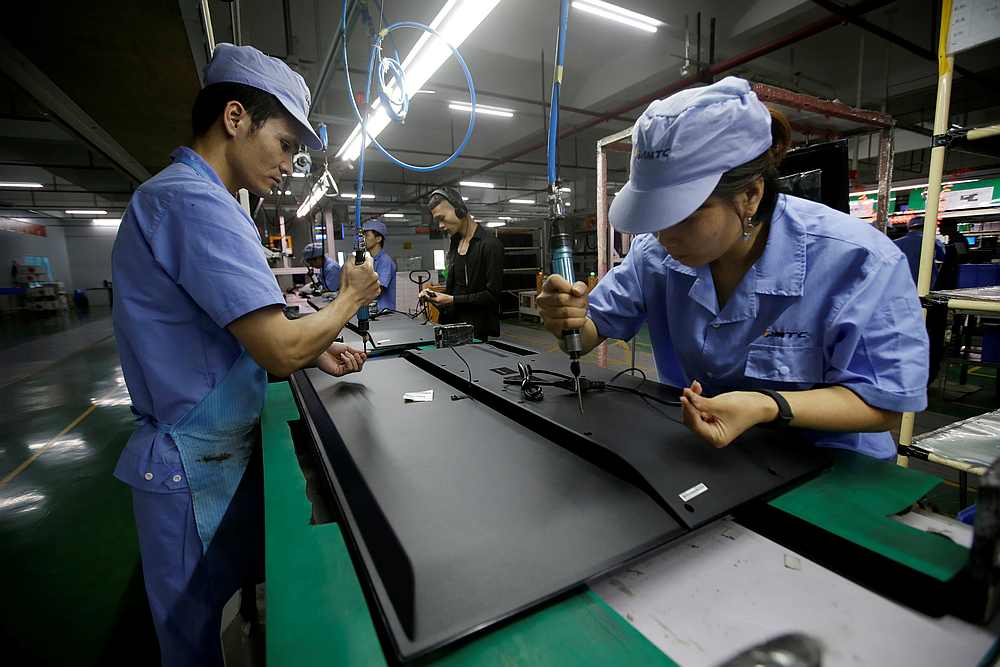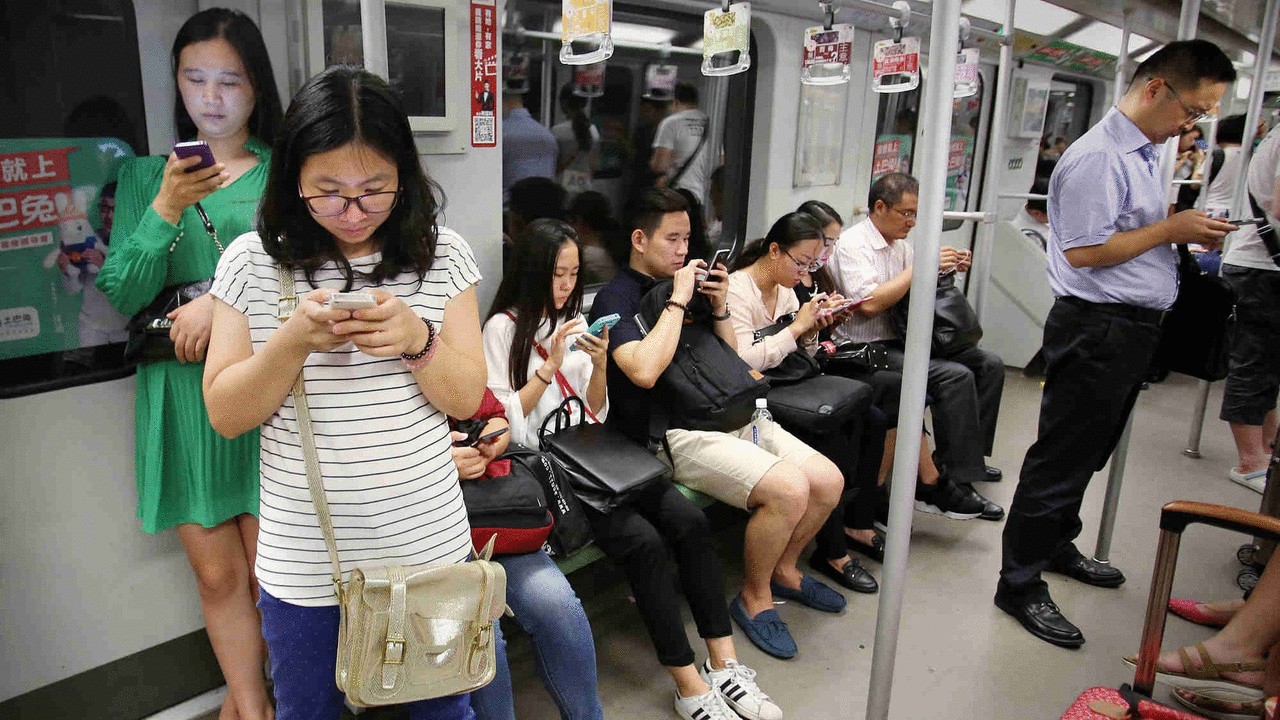The four-day week
In many countries, work patterns and working hours are changing. The trend is similar even in allegedly ‘workaholic’ China. This article in ZaoBao goes into more detail.
On 31 May, Zhang Xuefeng, a famous online research teacher, announced that his company would implement four-day working from August, with no change in salary.
It's two days off, two days on, two days off, and Wednesday off. Of course, there will be work for everyone on Wednesday, but it's not compulsory to clock in.

Zhang Xuefeng's company is not an isolated case. In recent times, from Ctrip allowing employees to telecommute on Wednesdays and Fridays, to LeTV implementing a four-and-a-half-day work week, to two start-ups in Changsha and Wenzhou announcing more days off, the topic of four-day working has been frequently in the news.
However, for most workers, the four-day workweek still seems like an unattainable dream. It's been nearly 30 years since the five-day workweek was implemented (in China), but many companies have yet to implement a double break. The latest figures from China's National Bureau of Statistics show that the average weekly working hours of employed workers in enterprises nationwide is 46.4 hours, translating into an average of 5.8 days per week based on an eight-hour working day.
One sure thing is that reducing working hours increases labour productivity. As productivity increases, the number of companies that voluntarily implement the four-day workweek will gradually increase.

In April 2023, the news that a company in Changsha had introduced a four-day workweek caused much debate. The company's name was "Wednesday is also off" Culture and Media Co. The founder, Zhu Tianzhi, announced from the day he set up the company that all staff would have paid holidays on Wednesdays and double days off.
The notice generated a surprising amount of interest. In just one day, thousands of people enquired about the job offer, and Zhu Tianzhi's mobile phone was constantly flooded with calls. Many people questioned his hype about "doing four days off", while others suspected it was a fraudulent company and warned applicants to be wary of being duped.

Traditionally, it is believed that one day of less work is less output and one day of less revenue for the company. It is unrealistic to expect employers to choose to reduce working hours independently. If a company takes the initiative to change from a five-day to a four-day working week, the employer believes that reducing working hours does not reduce output. In other words, employees must be more efficient in their survival during working hours.
However, research and practice at home and abroad have shown that shorter working hours help to increase labour productivity.
As early as 1986, the National Science and Technology Commission's Working Hours Reduction Group found that most units at the time worked 48 hours a week. However, the effective hours were less than 30, and it was common for people to arrive late, leave early, read newspapers, and knit jumpers at work.
Overseas
A 2022 pilot by the non-profit organisation 4 Day Week Global in the UK, US and Australia showed that companies' performance improved slightly after taking four days off and reducing working hours. In the UK, for example, some 2,900 employees at 61 companies participating in the pilot worked an average of 34 hours a day, four days a week, while maintaining the same pay and benefits. At the end of the six-month trial, company revenues had increased by an average of 1.4 per cent, and staff turnover had fallen by 57 per cent. At the end of the trial, 92 per cent of companies decided to continue with the four-day workweek.
The work ethic of hard work, struggle and obedience has long seemed to be in the blood of East Asian workers. Zhu Tianzhi used to believe that employees had to work very hard and go through trials and tribulations to grow and gain the trust and promotion of the company.

However, in addition to the immediate efficiency gains from reducing redundant hours, the pilot study also found that employees who worked four days off generally felt happier, with reduced burnout and mental stress. People have more leisure time to spend on sleep, exercise, and self-improvement, which can indirectly improve labour efficiency and create a positive cycle.
Unemployment
Whether it was the Great Depression in the US in 1993, the wave of layoffs in China in the 1990s, or the introduction of the 35-hour work week in France around 2000, different countries have used shortening working hours many times in history to ease employment pressure. In France in 2000, after reducing working hours from 39 to 35 hours per week, the unemployment rate fell from 10.2% above the EU to a minimum of 7.1% but continued to rise again after 2008 to 10.1% in 2016. Opponents of the 35-hour working week, therefore, argue that the short working hours made the French workforce uncompetitive in the eyes of international investors, leading to foreign investment and is to blame for the slowdown in France's economic growth and high unemployment rate.

Furthermore, the experience of several countries shows that the jobs created by shorter working hours are more part-time than full-time and that the income of part-timers is strongly related to the number of hours worked.
The four-day workweek is still being implemented in China only by individual companies. When will the conditions be ripe for a four-day workweek nationwide?
According to Wang Qiyan's projections, the time will come in 2030 when the four-day workweek will be implemented nationwide. The Chinese Academy of Social Sciences' Green Paper on Leisure: China's Leisure Development Report 2017-2018, published in 2018, similarly suggests a nationwide 36-hour workday with a nine-hour workday and four-day workweek from 2030.
The time is still being determined for national reform of the four-day working system, and the few companies currently doing four days off are more like spontaneous pilots. So which companies and regions in China are likely to join the ranks of the pioneers?
According to Wang Qiyan, from a regional point of view, the eastern regions, with their advanced economies and higher levels of technology and equipment, are the most likely to implement the four-day workweek first. Regarding the size of enterprises, it would be more appropriate for state-owned and large and medium-sized enterprises to start. Smaller companies are already less efficient, and with the general decline in profits after the epidemic, it would be easier for them to survive if they were to work four days off.

Yet today, the companies participating in the four-day work pilot are generally small. Of the 61 companies in the UK participating in the trial, 66% have no more than 25 employees, and only 22% have more than 50 employees. The 33 participating companies in the US are similar, with only three having more than 50 employees.
The one company that is still in the process of recruiting, "Even Wednesday", is expected to have between 30 and 50 employees. Originally, Zhu Tianzhi only wanted to see if he could increase the motivation of his staff by taking three days off. Now that the company has unexpectedly received attention from the outside world, he has developed a greater sense of determination and mission, hoping that "Wednesdays off too" can become a model.
In the month since the company was founded, he has been exploring new possibilities for the working hours system. For example, he has divided the staff into two groups, those who are willing to work overtime and those who are eager to take a break; he has given the former an overtime allowance or a transfer to the next day; he has stipulated that overtime is paid at 150% of the basic salary for activities such as orientation, reunions and annual meetings. Zhu Tianzhi also told us that he intends to cancel the redeployment of compensatory work for the Dragon Boat Festival holiday soon and take a holiday instead.
Some people say we are a small business and are not representative, which is untrue.
Zhu Tianzhi said he understands that every business has its laws of survival, "but if we become a big business, it represents more opportunities and ability for us to experiment.
Worked on the article:

Wanlikhang





